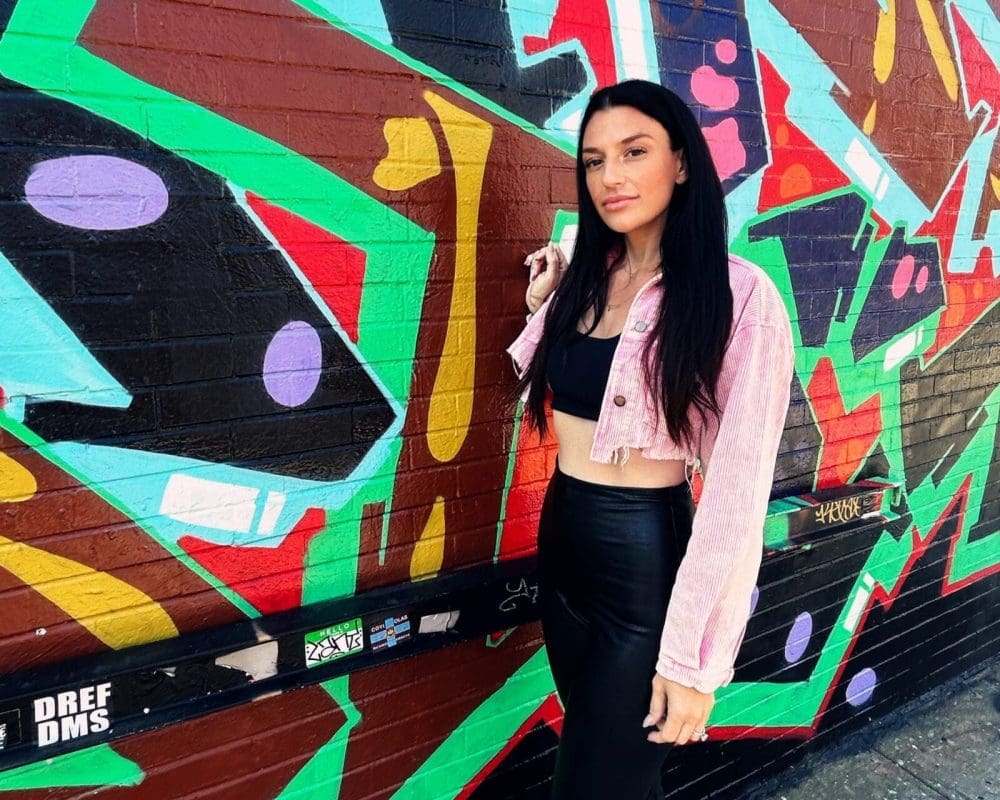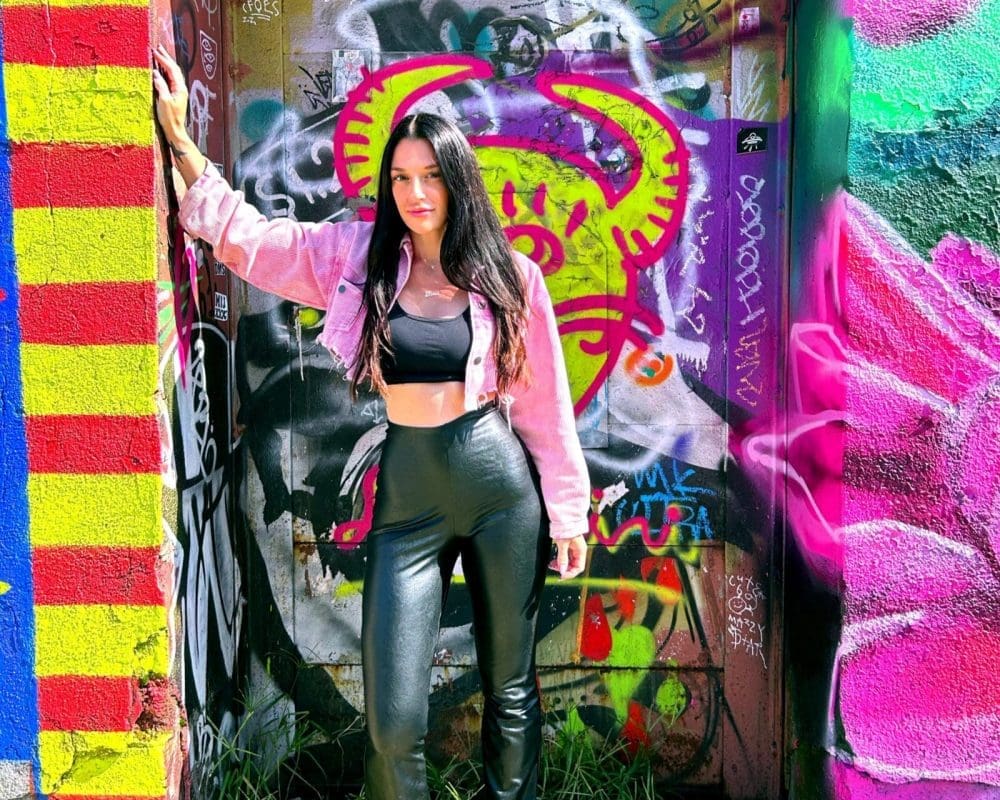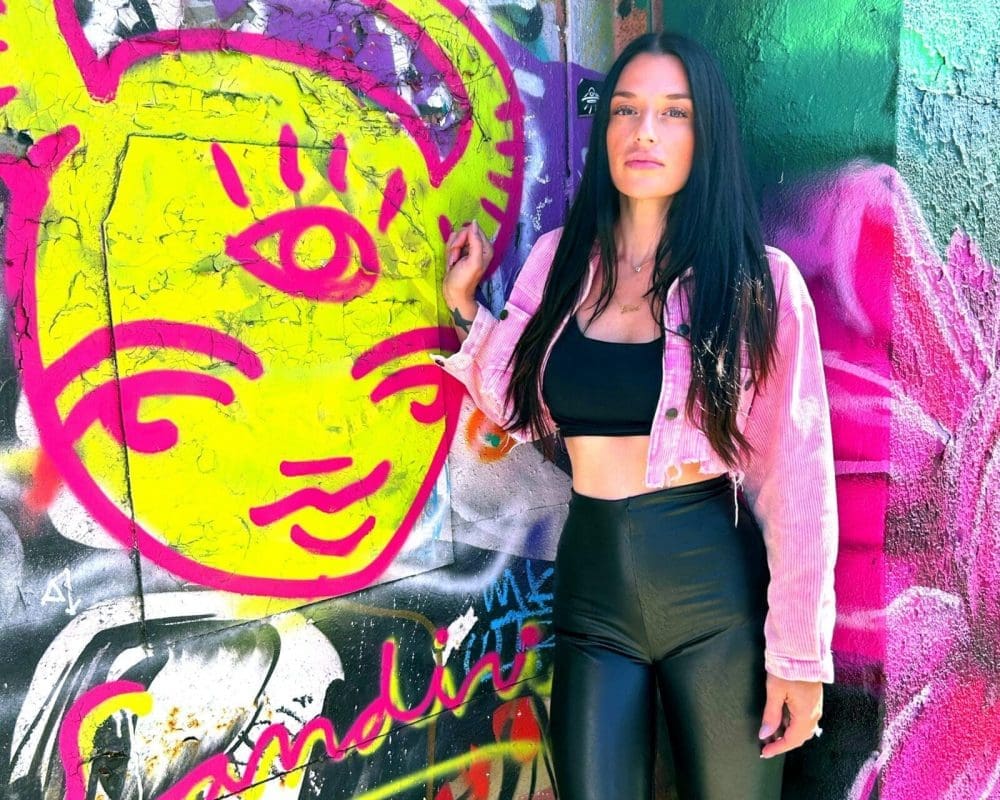Ella Shae, the author of “From Broken to Beautifully Broken,” takes us on a journey from the genesis of her inspirational book to the impact it has had on her readers. This exclusive interview dives into the core of her writing, exploring the central message of her work and the personal struggles that fueled the narrative. Shae’s desire to empower others and shatter the stigmas surrounding mental health and self-acceptance shines through in her candid responses. As she shares her views on creative criticism and the unique qualities of her book, readers are granted a glimpse into her genuine and relatable storytelling style.
The interview concludes with a glimpse into her future endeavors and a unique touch, where she encourages readers to accompany their reading with carefully chosen songs that complement the emotions of each chapter. The author’s dedication to healing, self-discovery, and personal growth offers a profound and uplifting perspective on life’s challenges.
Ella Shae Q&A
What inspired you to write From Broken to Beautifully Broken?
The book started out as simply writing for me. I always expressed my emotions through writing and so while I was in treatment for an eating disorder, I would often write bits and pieces about parts of my life. I was never really open about some of those things until I realized the people sitting around me were going through the same thing. I found comfort in having this in common with them. Once I took a step back, I realized what I had in front of me, my story could be the comfort to help someone else. I realized my journey may be the same as someone else who is living in silence.
What is the central message of your book?
From Broken to Beautifully Broken teaches the reader that you can change the narrative of your life. Your traumas, or life events don’t define you, as long as you can change your perspective and look at your situation with a different mindset. Only then can you find the beauty in all of the brokenness. The book is written for those who can’t yet find their voice.The author is the voice and the face for all of those suffering. While reading about her [the main character’s] journey and struggles, you can find one or many relatable moments and use her advice on how to change your narrative, heal from your past and control the life you have ahead of you. At the least, you can feel comfort in knowing someone has become the best version of themselves even after facing the same struggles as you or someone you love.
Can you tell us about some of the struggles you faced that you cover in the book?
From Broken to Beautifully Broken is a story that chronicles my life from childhood to adulthood. It starts with a nearly fatal car accident at four years old and ends with being admitted into an eating disorder program near organ failure. The journey talks about the things in between that I always thought had broken me… bullying, physical and emotional abuse, substance abuse, narcissistic control, divorce, starting over, mental health struggles, grief, loss, parenting and more. After being in treatment and opening old wounds, I was able to look at my life’s journey through the lens of empathy and compassion and became enlightened. I learned self love, self care and most importantly, I learned how to find the beauty out of every single one of those traumas. Now I want to teach the readers how to do the same. I want them to find beauty in the brokenness. Anyone, any age can relate to this book and while this book is a real page turner, it also leaves you enlightened about your own journey.

What was the most rewarding part of writing this book?
I’ve found my freedom before I wrote this book, so my hope was to do the same for others. I am no longer a victim of life’s circumstances. No one has enough power to make me anything, except for me. I choose who I want to be every day when I wake up and I can choose to shed a thousand skins and live a new life if I want to. There is something to be said about letting go of the things that made us small. Once you find your voice, you find your freedom and the world is what YOU want it to be. Everyday I receive messages from people who found their pivotal moment, who found their voice or their freedom. That is the reward of writing this book!
What do you hope readers will take away from your book?
- I want my readers to feel that they are not alone. That they are seen. That they are heard and to use their voice
- I want to provide insight into various mental health issues for the parents or the spouses, partners or friends of someone struggling, not just those struggling. Any person’s recovery or mindset through life’s challenges is only going to be as successful as the support system they have around them. It’s very important for the people who are helping someone who is struggling to understand what they are going through. Take the time to educate yourself on the issues your friend or spouse or child is going through.
- I want my readers to know that recovery is not linear but it is attainable and you can even come out on the other side better than you’ve ever been.
- I want the world to know that Mental Health is Health and we need to do better, earlier. By saying “better” I mean eliminating stigmas on mental health as well as eliminating societal standards of beauty that are unattainable and causing so many to suffer.
- Lastly I want the reader to understand the importance of self love, self care and setting boundaries or expectations. Hopefully the things I went through can help enlighten them on their own journeys.
What is your advice for dealing with creative criticism?
While I do believe that creative criticism should not be taken negatively, I also believe you need to look closely at where it is coming from. Collaboration on anything is always a good idea. Having a healthy conversation with someone about their opinions is a great thing. Life would be boring if everyone agreed on everything. Different points of view help your narrative sometimes. What we do need to be aware of is why the person is giving you this criticism in the first place. That is so extremely important for any person who has dealt with narcissism or abuse. Manipulation can look like constructive criticism, so take everything into consideration before moving forward with what you do. Listen, absorb, reflect, process and proceed. You decide to take the advice or not. It’s your life, it’s your narrative…you control that. Don’t give that power to anyone else.
What was the hardest part of writing From Broken to Beautifully Broken?
It was difficult to write about parts of my life that no one has ever known. Revisiting certain times while writing the chapter was hard but I wanted true, raw emotion so I had to push through and keep typing. Sometimes I would close the computer and revisit that chapter when I was ready. Other times I would put on some music and let those emotions pour onto the pages.
What do you think makes your book unique?
Every word in my book was written by me. Every word is my truth. The book isn’t just a self help book. It tells the story of my life. It’s unique in a way that there is a story to follow, yet it offers advice on how to be the best version of yourself. It keeps you captivated and invested in the characters while also teaching you how to find the beauty in the things that normal chip and crack us little by little. It talks about things that people don’t normally talk about out loud. It’s brutally honest, self-reflective and inspiring.

What are your favorite books to read?
I love self -help books. I find them interesting and I am always looking to grow in a new way. I love books that leave you questioning things and wanting to know more.
What advice would you give to aspiring writers?
Getting started is the hardest part. Once you start to get the words down it tends to flow. There will be times when you’ll need a break and the writing process is not one to be rushed. I deleted and re-wrote parts of chapters more times than I could count. There is no race to the finish line. Take as long as you need to get exactly what you want the world to read. ALSO, I found that when I was doing mindless activities…vacuuming, washing the dishes, etc that I would form these great pieces in my head. I would stop what I was doing and immediately write the thought down because believe me when I tell you, an hour from then, when you sit down to write, the thought will have morphed into something different and you’ll wish you had written down your thoughts.
What is your favorite thing about being an author?
I love all of the new people, foundations and companies I have begun to have relationships with. These are people I may have not otherwise had contact with and I have found some of the best people and causes from becoming an author. I love that people contact me daily with how I have helped their journey in a positive way.
What are you working on next?
Currently, I am speaking for numerous foundations, telling my story in hopes to help theirs in some way. I am working with the treatment center in which I was admitted, to create a community event educating everyone on eating disorders.
My goal is to speak in middle and high schools on the importance of self love and self care, boundaries and using your voice. I would like to speak to elementary level children on expressing their emotions in a healthy way and hopefully collaborate with a foundation that has begun this in other areas of the world.
I am a dreamer and I like to think big, so my end game is something that will take some time but I intend on helping many adults with my “top secret” plan. Stay tuned.
Is there anything else you’d like to share with our readers?
Each chapter of my book has a song that goes with it. That song really encapsulates how I felt at the time of that life event. You should listen to the song after you read the chapter. It may inspire you if you relate to that chapter. I hope you enjoy the songs, because I believe music heals the soul!
Tom is a lifelong New Jersey resident, Rutgers and FDU alumni and the publisher of The Digest.
- Tom Lavecchiahttps://thedigestonline.com/author/tom/
- Tom Lavecchiahttps://thedigestonline.com/author/tom/
- Tom Lavecchiahttps://thedigestonline.com/author/tom/
- Tom Lavecchiahttps://thedigestonline.com/author/tom/


